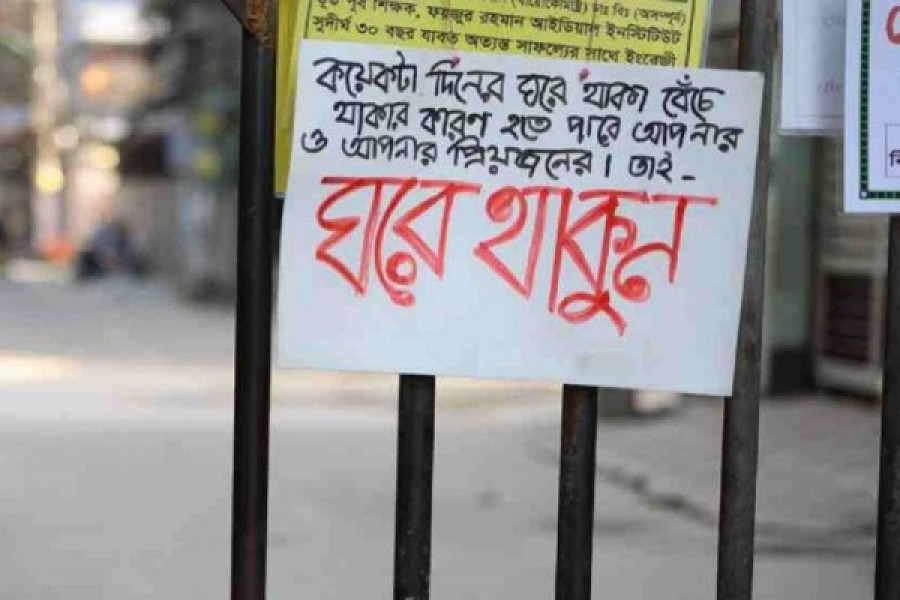The government has imposed some restrictions to contain the deadly virus's spread in the first week of this month. However, most of these steps lack careful thinking and reflect that no lesson from mismanagement during the first wave was learnt. It is pathetic to see no well-coordinated measure to deal with the second wave of Covid-19. The authorities are not clear about the objectives to be achieved.
Take the example of public transport mismanagement. Suddenly, it was announced that public buses would carry 50 per cent of passengers against the total sitting capacity. To compensate for the bus operators' loss, the government also hiked bus fare by 60 per cent. As a result, thousands of daily commuters were put into serious trouble. Their sufferings aggravated when ride-sharing motorbike service was disallowed.
Finally, restriction on movement of all kinds of public transport across the country also imposed in the first working days of the week came as a preposterous decision. Within two days, the authorities have reversed the decision and announced resumption of public transport services in major cities, from early morning to evening. This kind of vacillation indicates that there is no well-thought plan.
Moreover, the nightmare in the country's public transport is known to all. Over the years, the authorities have failed to even reduce the daily commuters' endless suffering due to chaotic and mismanaged public transport system. The commuters have no option but to rely on largely distorted, unsafe, dirty and unhygienic public buses and minibuses in Dhaka. During the first wave of Covid last year, these buses' health hazards were exposed blatantly. Except for a few sanitising days and that too only on a few buses, there was no effective mechanism to make the public buses keep tolerably clean. The health safety of both passengers and transport workers is still absent. The same old, dirty and dilapidated buses are running on the roads.
Again, keeping the factories and many offices open amidst the restriction on public transport makes low-paid workers' movement costly and painful. The government is expecting that the factory owners will ensure safety and health protocol for workers. Previous experience showed that it would not happen. Almost all the factories ignore the health protocols. Factories remained open mainly due to pressure from the export-oriented ready-made garments (RMG) industry owners who have extracted a series of benefits to fight against the Covid. Workers are, however, widely deprived of and suffering silently.
It is also sad to observe that there is little attention to the informal sector, which employs around 85 per cent of the country's labour force. Incomes of various small traders, shopkeepers and vendors, day workers, rickshaw and van pullers have eroded heavily during the lockdown last year. Most of them are yet to resume their earnings at the pre-Covid level. New restrictions without adequate compensations make their living conditions worse.
There was an opportunity to get prepared for the second wave of the virus. In the last quarter of the previous year, when normalcy returned to a large extent, it was possible to adopt preventive measures like improving hospital and medical facilities. Laxity, coupled with complacency, appeared as a big barrier to any comprehensive plan. So, mismanagement continued.


